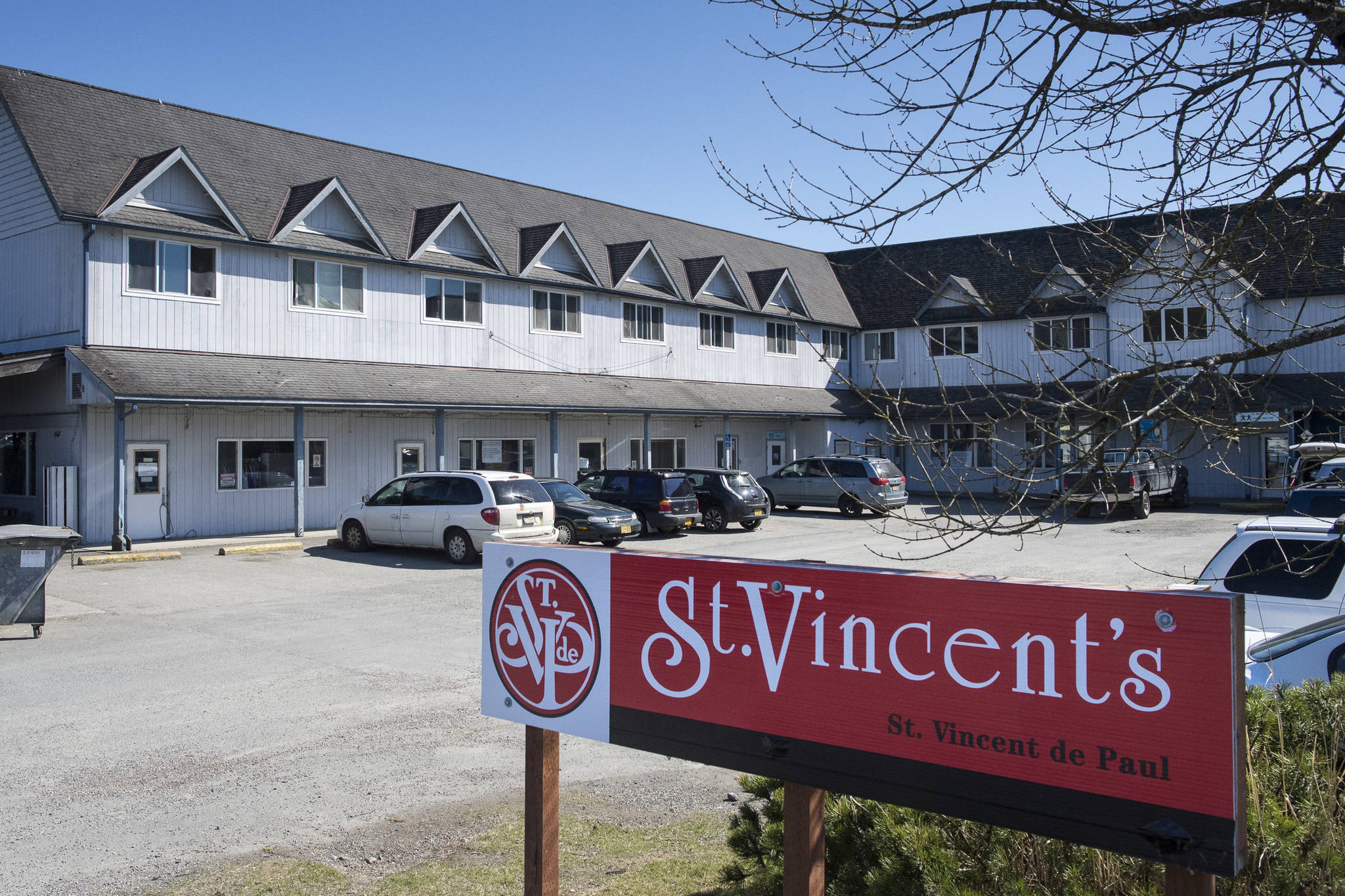Shifting responsibility for the city’s sleep off program was revisited Monday night with some new information and some familiar complaints.
Previously, the idea of Capital City Fire/Rescue assuming responsibility for the program — which transports inebriated residents to a safe space to sleep off their intoxication — was discussed at length. City and Borough of Juneau Committee of the Whole talked about it again during its meeting.
The program is currently operated 24/7 by Bartlett Regional Hospital and housed at the Rainforest Recovery building. The new program, called Community Assistance Response and Emergency Services (CARES) would operate 8 p.m.-8 a.m., when 95 percent of calls for the service come in, said Deputy City Manager Mia Cosgrove, and inebriated residents would be transported to a St. Vincent de Paul property in the Mendenhall Valley.
[Big changes could be coming to sleep off program]
The city provides $800,000 annually for the program as operated by the hospital, and the new iteration is also asking for $800,000.
“We believe the actual start-up cost will be closer to $700,000,” said Deputy City Manager Mila Cosgrove.
City staff was instructed to prepare budget documents to that effect, but there were no voting decisions made or motions made.
As during the last committee at which the topic was discussed, there was a lot of discussion about the relative unpopularity of the program — hospital chief behavioral health officer Bradley Grigg said fewer than one person per day uses the sleep off shelter — and some of the logistical wrinkles in the new plan.
While people actually sleeping off their intoxication at the shelter is less common that in past years, Grigg and CCFR Chief Richard Etheridge said demand has increased for transportation from bars to the Juneau Housing First Collaborative building, which houses homeless people.
Assembly member Wade Bryson asked if people seem to be using the service as a de facto shuttle service.
Grigg said the people being picked up do “have some level of intoxication.”
Bryson said there are other several other services in Juneau that provide support for homeless people that may be more deserving of the $800,000 being considered for the sleep off program, but aren’t receiving the money because their clients aren’t getting “obliterated in public.”
He also asked Etheridge bluntly if he thought the revamped program is a good idea.
“Personally, I do think it’s a good idea,” Etheridge said. “Hopefully we can connect people to the services and help solve some of those needs.”
[Former Juneau resident interviews for principal position]
Additionally, Etheridge said while recruiting firefighters and emergency medical technicians remains a challenge for CCFR and other fire departments, the new sleep off program could expand the scope of people CCFR can hire.
A lower level of certification is needed to provide the medical assessments that sleep off clients receive in the field than is needed to be an EMT, Etheridge said.
“We can take somebody who’s 18 years old right out of high school,” Etheridge said. “That’s their foot into the door of a public safety career.”
Housing help
City and Borough of Juneau Committee of the Whole is considering some changes that could lead to more housing in Juneau.
Scott Ciambor, chief housing officer for City and Borough of Juneau, spoke to the committee about the possibility of purchasing land in the Vintage Park subdivision to be the site of an assisted living project.
“I’d like to see this squared away before I’m a senior in Juneau,” said Alicia Hughes-Skandijs to laughs from her fellow elected officials.
[Summit looks at problems and solutions for housing in Southeast Alaska]
Ciambor did not have an exact figure for the anticipated price of the roughly 2.39 acres of land at Vintage Business Park, near Safeway, but said an appraisal will be done.
There is currently a purchase and sales agreement assigned to Torrey Pines Development/Bayshire Senior Living for just less than $1.52 million, but Ciambor said the developers are willing to relinquish the option.
That possible purchase was adding to the pending items list for later analysis during the budget-making process.
Additionally, the possibility of incentivizing development of senior housing, workforce housing and downtown housing through tax abatement was discussed.
Assembly member Michelle Bonnet Hale said there are observably not enough houses in Juneau, and it may be worth pursuing.
Assembly member Carole Triem expressed concern that such incentives could lead developers to ask for additional subsidization from the city.
However, ultimately, city staff was instructed to draft potential ordinances that would create a tax abatement program for development.
“It’s a great discussion,” Ciambor said after the meeting.
• Contact arts and culture reporter Ben Hohenstatt at (907)523-2243 or bhohenstatt@juneauempire.com. Follow him on Twitter at @BenHohenstatt.

